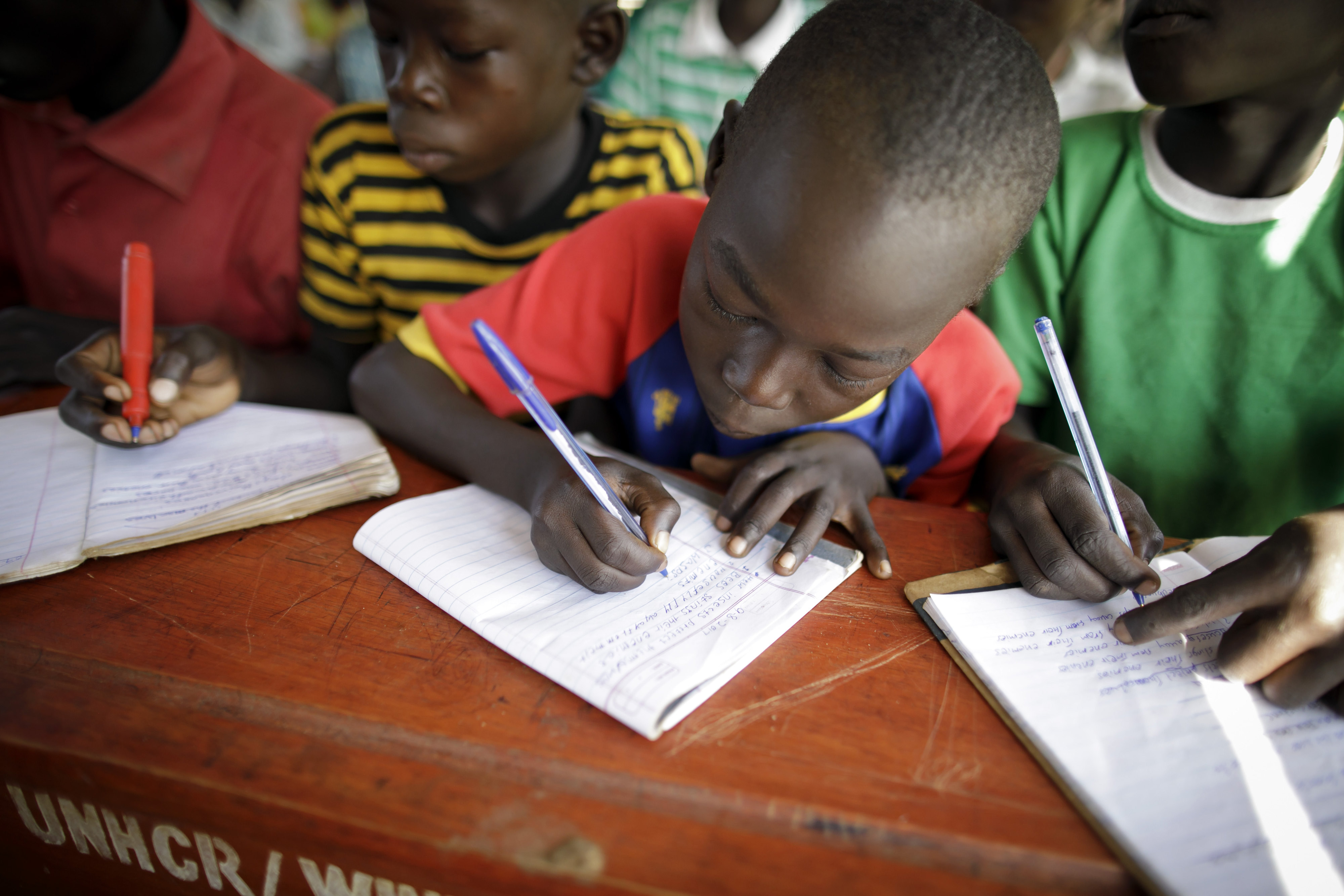With German support, schools in Uganda are being supplied with climate-neutral solar energy.
Copyright© Thomas Koehler/photothek.net
Green people's energy: cooperation in action Uganda: solar power for schools
Therefore, the Green People’s Energy initiative will introduce practice-oriented curricula with a focus on renewables in three training institutes and provide training and further training for 90 teachers and 200 expert staff. In addition 250 businesses will be supported in using decentralised renewable energy systems and 150 social institutions will receive advice on purchasing such systems.
Solar lighting and electricity have already been provided to hospitals and primary schools thanks to German development cooperation. This has enabled many children to stay longer at school and provided a safer environment for them, and the number of children attending the final year of these schools has gone up as a result. That is why the Green People’s Energy initiative wants to bring power to more primary schools in Uganda.
For this, high-quality solar home systems are being installed, which use modern lithium-ion batteries, making them longer-lasting and climate-friendly. The solar home systems can be used to light classrooms and school compounds, charge mobile phones and operate energy-efficient electronic data processing systems.
The activities are accompanied by an advertising campaign to inform schools, teachers and parents about the availability and advantages of such high-quality, safe and climate-friendly solar systems.
In order to make these systems affordable for potential users, different financing options are offered. The systems are slightly subsided and schools can either pay for them in instalments or with their mobile phones under a “pay as you go” scheme.
Up to now, the district administrations have informed more than 165 school administrations about modern solar homes systems for primary schools, and a demonstration plant was set up at a school in northern Uganda. It is planned to equip at least 100 social institutions, including primary schools, with solar home systems by the end of 2023.
Experience has shown that, when given competent advice and offered attractive financing options, school administrations and parents are willing to invest, as part of market-based approaches, in solar systems for schools and thus in their children’s education in the spirit of civic engagement.
As at: 22/09/2022
